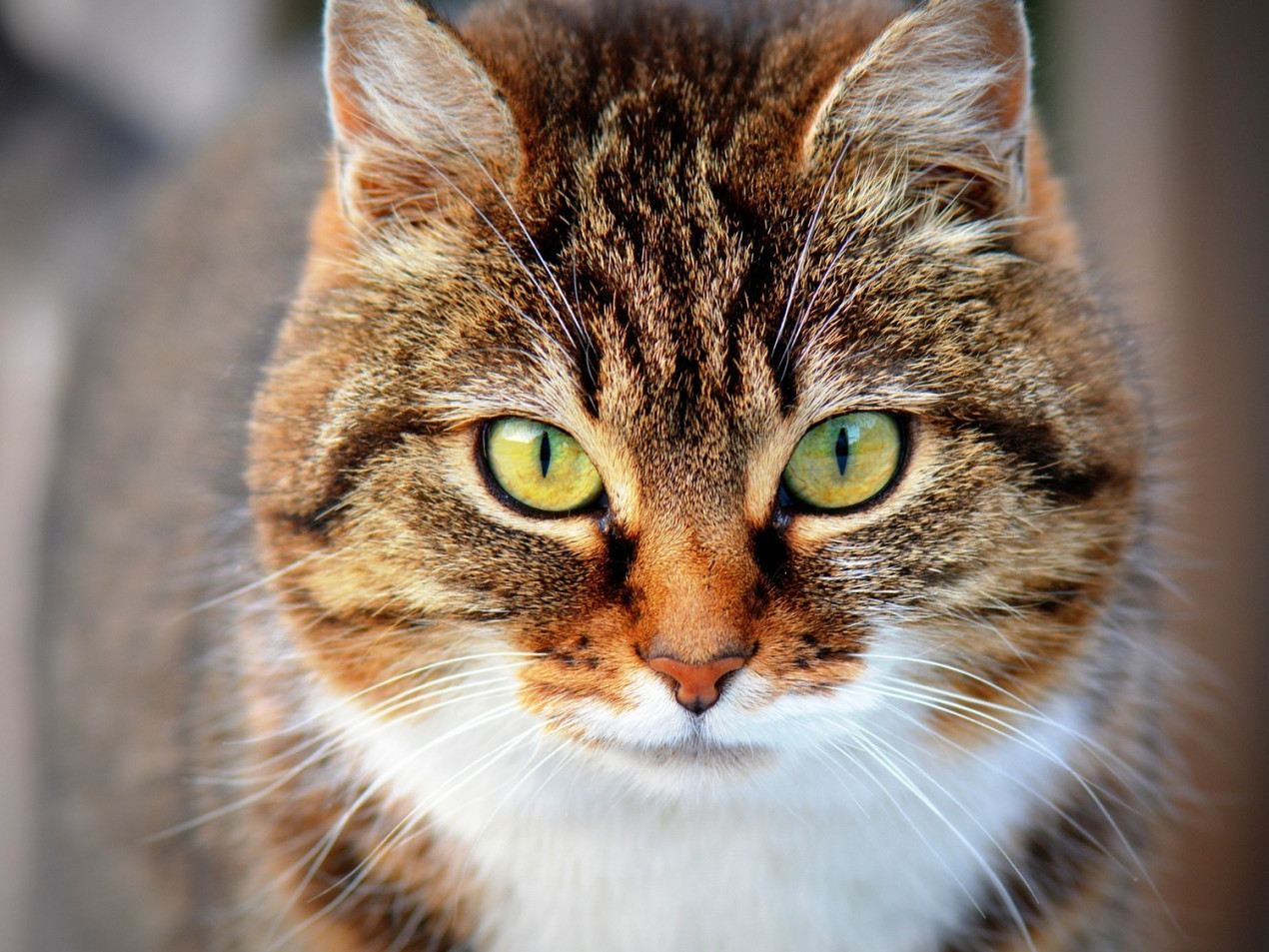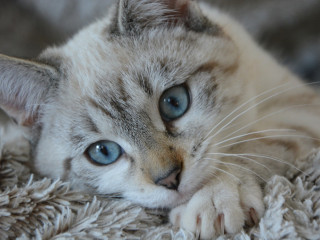
What is cat conjunctivitis?
Cat conjunctivitis occurs when the conjunctiva – the lining of your cat’s eyelid – becomes inflamed. The conjunctiva protects your cat’s eyes from dirt, bacteria and other harmful substances and when it is damaged it can cause your cat’s eyes to become red, painful, swollen and ooze discharge. Conjunctivitis is one of the most common eye problems in cats and can be very uncomfortable. It can also affect just one or both of your cat’s eyes. If you’re concerned that your cat has conjunctivitis you should contact a vet to ensure they get the treatment they need to ease their discomfort.
Is conjunctivitis in cats painful?
If you have ever experienced conjunctivitis you will know that it is very uncomfortable and can be painful – and it’s the same for cats. Plus, if your cat is uncomfortable, they might try to rub or scratch the affected eye (or eyes) which could cause further pain or damage.

What are the signs of cat conjunctivitis?
Signs of cat conjunctivitis include:
- Red or pink eye
- Closing their eye
- Swelling
- Squinting
- Blinking a lot
- Sensitivity to light
- Eye discharge (varying in colour and consistency depending on the cause)
- Pawing at the affected eye
- Swollen and red third eyelid
If your cat shows any of these symptoms get in touch with a vet for advice.
How does a cat get conjunctivitis?
One of the most common causes of cat conjunctivitis is cat flu also known as feline respiratory disease. The symptoms of cat flu are fairly similar to that of a common cold for humans (such as a runny nose, sneezing and fever), but can be particularly dangerous for kittens, older cats and cats with other health issues. We explain more about cat flu here.
Your cat’s conjunctivitis could also be caused by bacteria, something stuck in their eye, or other irritants like chemicals, grit or dirt.
Skin allergies, ulcers, eyelid/eyelash disorders and trauma could also cause conjunctivitis to flare up.

How is cat conjunctivitis diagnosed?
In order to diagnose cat conjunctivitis, your vet will typically examine your cat for any obvious signs and rule out any other eye conditions. They will also want to know about your cat’s health history and anything leading up to the onset of symptoms to help make a diagnosis and identify the underlying cause. Your vet might also want to carry out further tests to reach a diagnosis, such as applying a dye to your cat’s eye to check for cornea problems, doing blood tests or taking a sample for biopsy.
How do you treat conjunctivitis in cats?
Treatment for cat conjunctivitis really depends on what’s causing it, meaning it can vary widely. Treatment options include eye drops (to treat a bacterial infection or soothe inflammation), pain relief, antibacterial or antiviral medication to treat underlying causes, treatment for allergies and surgery to remove anything stuck in your cat’s eye. While treatment may vary, what remains the same is that the sooner your cat’s conjunctivitis is treated the better.
Will cat conjunctivitis go away by itself?
If your cat is showing signs of conjunctivitis, not only might they be in pain or discomfort but it could also be a result of (possibly infectious) underlying issues that could require treatment. That’s why you should seek veterinary advice rather than wait for your cat’s conjunctivitis to resolve by itself.
Can conjunctivitis cause blindness in cats?
If left untreated, some of the underlying causes of conjunctivitis in cats could eventually lead to more serious eye problems including blindness. While many causes of conjunctivitis are treatable, don’t delay in speaking to a vet.
What is normal cat eye discharge?
Just like us, cats may produce a very small amount of discharge from their eyes. But if you notice any changes in your cat’s eye discharge (an increase, a change of colour or consistency) or any accompanying symptoms such as redness or swelling, it could indicate an infection or other eye problem and should be taken seriously. Catching eye problems in cats as quickly as possible is vital so the best approach is to seek veterinary advice if you are the least bit concerned about your cat’s eyes.
Can cats use human eye drops?
Many human medications are toxic to cats so you should never give your cat human eye drops or other medication without consulting a vet. It’s understandable that you would want to relieve your cat’s discomfort but trying to help them in this way could have tragic consequences. Please always speak to a vet and follow their advice on medication.

